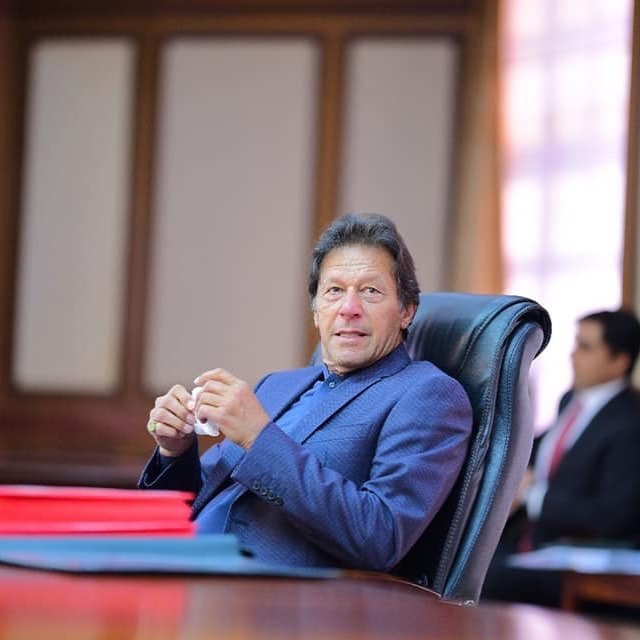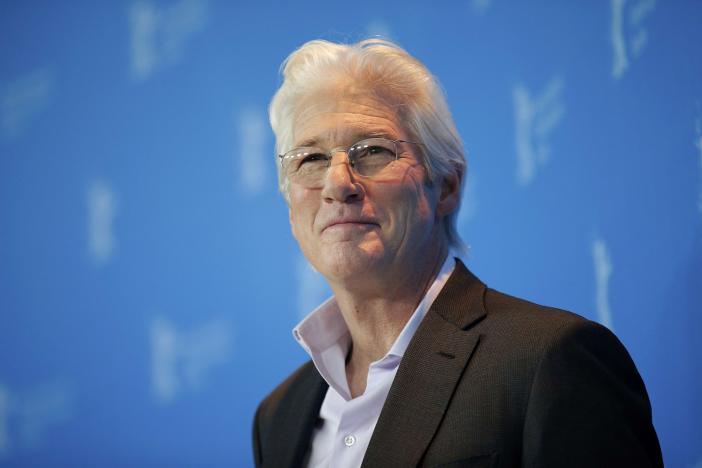
Exhibit A: PTI
Today it is fashionable to blame this government for being well-intentioned yet incompetent. But was the PTI born incompetent or did the party acquire this trait due to a peculiar set of circumstances? Every crisis has a back story.
And the PTI’s back story originates from Imran Khan’s crowning glory of lifting the 1992 World Cup. It was this moment when Khan was truly on top of the Pakistani world; the titan who was capping his glorious career by holding aloft the highest cricketing prize in the name of his nation. Along with this trophy, Khan lifted the nation’s hopes for a future that could be draped in bright colours of grit, courage and perseverance.
That March 25 evening, we were all citizens of the ‘Islamic’ Republic of Imran.
That’s when the problem began. You see, Imran had transformed into a giant and the only way to speak to a giant is to look up at him. Here was the perfect Pakistani man: Aitchison, Oxford, Test cricketer, top attack bowler, top all-rounder, top captain, winner of the World Cup - and handsome too. What more could you ask from a man?
So most did not ask much of him; dare not ask much of him. He was not to be questioned; he was to be adored, idolised and emulated. From that World Cup win in 1992, Khan rode a wave of adulation that refused to abate despite the vagaries of time. As the flame of cricketing ambition dimmed after the acquisition of the ultimate prize, Khan found a new channel for his burning ambition and drive: Shaukat Khanum Memorial Hospital. The momentum of national adulation kept pushing him higher and higher as he shifted his laser focus from his earlier career to his new aim. And it was during these years of crisscrossing the country for donations, meeting fawning people from all walks of life and re-discovering the country through non-cricketing lens, that Khan started thinking politics.
By this time he already enjoyed a stature that was bigger, higher and taller than that of presidents, prime ministers and generals. How do mere mortals converse with such a colossus? In essence then, when he formed his party there was no second line of leadership. In fact there was no third line of leadership, or fourth, or fifth or even tenth. His lieutenants were a thousand times below his towering personality. In fact, they were more his fans than his followers. Fans do not question, or debate, or argue. Fans adore. Thus was laid the foundation of the party’s fawning culture. This culture reigns till today. So does the difference in stature between him and his second line of leadership. Wait; there is no second line of leadership, or a third or a fourth or a fifth…
Then there was Khan’s message: small thieves are in jails while big thieves are in parliament. The message suited Khan. He was the ultimate outsider: someone who did not need the crutches of the system to wield influence and shape a new narrative. The message was powerful, potent and persuasive. It was also simple.
But too simple?
In an era dominated by stories of unchecked corruption, cronyism and crime, the power of Khan’s message lay in its contrast to the prevailing conventional political wisdom and the resigned acceptance of this flawed wisdom by the electorate. He did not need to nuance his message. As the outsider, it was but natural for him to speak in black and white and not shades of grey.
This was a departure from the more finessed messages in developed democracies that countries like Pakistan try to emulate in form if not in substance. The Labour Party in the UK does not threaten to fling Conservatives in jail. The Democrats in the US do not warn the Republicans they will cleanse the system of them. They do not need to. The system works and law deals with law breakers regardless of their stature. Opposition discourse is therefore sharpened within the larger policy framework and presented to the voters as a better policy option. This requires the Opposition to comb through the nuances of existing policy, sculpt better options with the help of specialists and stitch together a message that relies heavily on specifics.
Khan did not need to do all this. The strength of his message was its sheer contrast to the prevailing political wisdom. But this contrast was also its weakness. Since the simplicity of the contrast worked well, there was no compulsion or urge to add nuance or detail or specifics. Slowly and gradually, with constant repetition over the years, this simple message became a party mantra.
Khan was not at fault. He genuinely believed that if the corrupt were thrown in jails and money recovered, the economy would set sail for glorious destinations. So did his fan base. He genuinely believed that if he gained power people would open up their hearts and wallets and fill official coffers till dollars overflowed. So did his fan base. He genuinely believed that citizens would trust an honest leader and pay taxes which would take care of all deficits. So did his fan base. He genuinely believed he would bring a revolution through police reforms, education reforms and health reforms because all he had to do was to sincerely believe in these reforms. So did his fan base.
With this belief in place – and garnering public response – no attention was paid to actually thinking up a plan if these beliefs did not materialise in concrete results. Khan’s team was pumped with his message, energised by his charisma, overawed by his stature and blinded by the optimism of groupthink. Policy was for nerds, not for men engaged in the noble pursuit of overthrowing a corrupt regime.
Then Khan swept into power. So did his fan base. Some became ministers, some advisers. Pakistan, with all its complex problems, nuanced fault lines and bleeding wounds, was in their hands. Their leader had, through his simple but effective vision, and his sheer perseverance, brought them into government. But once the euphoria of success settled, the enormity of governance opened its jaws like a hundred-foot shark. A collective PTI lament reverberated across the landscape: “How is that! What do we do now?” These fans-turned-ministers had never really delved deep into such matters. They were clueless. So they did what they could: take their simple, rustic, specifics-starved mantra and dress it up as policy.
Thus was born this famed incompetence. Why blame the PTI? Blame its circumstances.
Published in The Express Tribune, April 14th, 2019.
Like Opinion & Editorial on Facebook, follow @ETOpEd on Twitter to receive all updates on all our daily pieces.

1732271743-0/diddy-(45)1732271743-0-165x106.webp)










COMMENTS (3)
Comments are moderated and generally will be posted if they are on-topic and not abusive.
For more information, please see our Comments FAQ